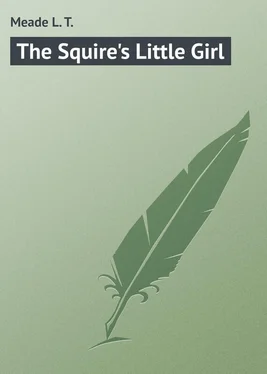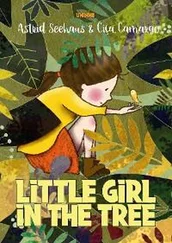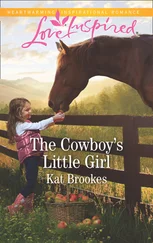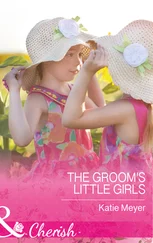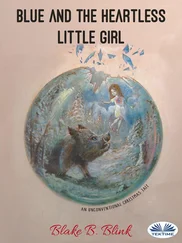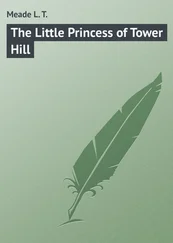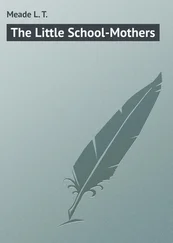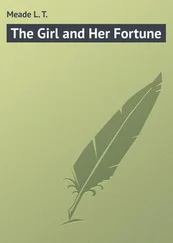L. Meade - The Squire's Little Girl
Здесь есть возможность читать онлайн «L. Meade - The Squire's Little Girl» — ознакомительный отрывок электронной книги совершенно бесплатно, а после прочтения отрывка купить полную версию. В некоторых случаях можно слушать аудио, скачать через торрент в формате fb2 и присутствует краткое содержание. Издательство: Иностранный паблик, Жанр: foreign_prose, foreign_children, на английском языке. Описание произведения, (предисловие) а так же отзывы посетителей доступны на портале библиотеки ЛибКат.
- Название:The Squire's Little Girl
- Автор:
- Издательство:Иностранный паблик
- Жанр:
- Год:неизвестен
- ISBN:нет данных
- Рейтинг книги:5 / 5. Голосов: 1
-
Избранное:Добавить в избранное
- Отзывы:
-
Ваша оценка:
- 100
- 1
- 2
- 3
- 4
- 5
The Squire's Little Girl: краткое содержание, описание и аннотация
Предлагаем к чтению аннотацию, описание, краткое содержание или предисловие (зависит от того, что написал сам автор книги «The Squire's Little Girl»). Если вы не нашли необходимую информацию о книге — напишите в комментариях, мы постараемся отыскать её.
The Squire's Little Girl — читать онлайн ознакомительный отрывок
Ниже представлен текст книги, разбитый по страницам. Система сохранения места последней прочитанной страницы, позволяет с удобством читать онлайн бесплатно книгу «The Squire's Little Girl», без необходимости каждый раз заново искать на чём Вы остановились. Поставьте закладку, и сможете в любой момент перейти на страницу, на которой закончили чтение.
Интервал:
Закладка:
Meade L. T.
The Squire's Little Girl
Chapter One
The Squire’s little daughter rode her pony down the avenue. She stopped for a moment at the gate, and the children at the other side could get a good view of her. There were four children, and they pressed together and nudged each other, and took in the small erect figure, and her sturdy pony, with open eyes and lips slightly apart. The Squire’s daughter was a fresh arrival at Harringay. Her existence had always been known, the children of the village and the children of the Rectory had talked of her, but she had never come to live amongst them until now, for her mother had died at her birth, and her father had gone to live abroad, and Phyllis, the one child of his house, had been with him. Now he had returned; Phyllis was twelve years old; the Hall was open once more, full of servants and full of guests, and Phyllis Harringay rode her pony in full view of the Rectory children. Phyllis had a thick, rather short bush of tawny hair. Her eyes were of a grey blue, her little features were short and straight, and her small face had many freckles on it. She was by no means a pretty child, but there was something piquant and at the same time dignified about her. She stopped now to speak to Mrs Ashley, the woman at the Lodge; and the children pressed a little nearer, and Ralph touched Rose, and Rose nodded to Susie, and all three gazed at Edward with the same question on each pair of lips and in each pair of eyes.
“Shall we introduce ourselves,” said Susie to her brother. “Do say yes, Ned; it is such an opportunity, and we are longing to know her. Do say that we may speak to her now.”
But Ned shook his head. “It is not manners,” he said; “we must not push ourselves on her. If, indeed, we could do anything for her it would be different.”
And just then, as if to help the children in their darling wish, the white gates which led to the Hall refused to open at Phyllis’s push, and Ned and Ralph both rushed to the rescue.
“Thank you,” said Phyllis, with a toss of her head and a smile in her bright eyes. Then she paused and looked the boys all over. They were sturdy little chaps, and Ned in particular had the brightest brown eyes and the most honest face in the world.
“It is awfully dull, isn’t it?” said the Squire’s daughter. “I wonder how any one can live in a place like this. Are there more than two of you, and have you lived here always?”
“There are more than two of us,” answered Ned, lifting his cap in the most polite manner, “and we don’t find it dull. Here are my two sisters,” he added; “may we introduce ourselves to you?”
“Oh, what a funny speech, and how nice it sounds!” cried Phyllis. “Four of you, and all children! I haven’t spoken to anything approaching a child for a whole fortnight. If it wasn’t for Bob here,” – she laid her hand on her pony’s mane as she spoke – “I believe I should lose my senses.”
“Well, you are all right now,” said Ned, who certainly never lost his. “Here’s Susie, and she’s dying to know you; and here’s Rosie, and I do believe she’d let her hair be cut short just for the pleasure of looking at you. And here am I, at your service; and I think I can promise that Ralph will do everything for you that boy could.”
Phyllis’s little face turned quite a bright pink. She glanced eagerly at both the girls, then she looked at Ralph, and finally she laughed.
“Let’s be friends,” she said. “I don’t know who you are nor anything about you, but, oh, you are human beings, you are children! and I am so glad – I am so glad.”
As she said the last words she held out her hand to Ned. He clasped it, and then let it drop, while the colour filled his own brown face.
“This makes all the difference in the world,” said Phyllis. “What shall we do? How are we to spend the afternoon? You don’t suppose, you four, that I’m going to lose sight of you, for if you do you are greatly mistaken.”
“What shall we do? Where shall we go?” cried Susie.
She came close to Phyllis and looked earnestly into her face.
Susie was a very pretty little girl; she had bright black eyes and a quantity of curling black hair, and her cheeks were rosy like the soft bloom of a peach, and her lips when she opened them showed pearly-white teeth.
Phyllis looked right down into Susie’s black eyes, and something in her heart stirred, so that the colour suffused her face, and she had difficulty in keeping back her tears.
“You are the Rectory children,” she said; “please tell me what your surname is.”
“Hilchester,” said Ralph, without a moment’s hesitation. “Oh! you will like father so much, Phyllis.”
“And mother too,” cried Rosie.
“Well, I tell you what it is,” cried Phyllis. “I am going with you as far as ever you’ll take me. Take me to the wildest and highest place in this neighbourhood, then I’ll get off my pony and run; I want to run for bare life; I want to feel wild and free; I want to forget that I’m the Squire’s little daughter, and that I’ve lots of money and grand dresses. I want to be, oh, shabby ! oh, wild ! dancing, joyful, just as if I hadn’t a care in the world.”
“Let’s do it,” cried Susie. “I know how; I know where. We’ll take her to the Friar’s Mount, won’t we, Ralph? Oh, you may ride, pretty little Phyllis, but I don’t think your pony can take you faster than we can run, and when we get to the Friar’s Mount you’ll know what freedom means.”
“I should just think so,” cried Phyllis. “I felt in prison until I saw you all, and now I’m so happy.”
She touched Bob’s neck with her whip, and soon she was cantering down the village street, the Rectory children following at her heels.
“Hullo!” cried a merry voice. “Where are you going, Phyl? Stop this instant, and tell me.”
The words came from Squire Harringay. He was standing on the steps of the principal inn. He did not know his little daughter with her cheeks on fire, her eyes bright, her mane of hair standing out from her pretty neck, and four shabbily dressed but decidedly energetic children following her.
“Don’t keep me now, Dad,” was Phyllis’s answer. “I’ve found playmates, and I am going to have a real good time. I’ll tell you in the evening, but not now.”
The gay little party turned a corner and were soon lost to view. The Squire turned to a neighbour —
“That’s a pretty sight!” he exclaimed. “And who are those young termagants who, to all appearance, have made my little daughter lose her senses?”
“The Rectory children,” was the response; “quite the wildest young imps in the countryside.”
“Phyllis will be a match for them,” said her father, and he rubbed his hands in a contented manner.
Chapter Two
Phyllis came home quite late. Her habit was torn; Bob, the pony, was covered with mud; mud had also been splashed all over the little girl’s neat costume – even her face and hands were more or less disfigured by it. Her curly hair was disfigured too with the mud from the swamps and dirty roads over which she had passed, but there was a brilliant colour in her cheeks and a happy light in her eyes. She rode into the yard, and a groom came up to take her pony.
“Miss Phyllis,” he exclaimed, “you have Bob in a lather!”
“Oh, never mind,” said Phyllis; “I have had a jolly time. I have found playmates.”
The groom touched his hat respectfully. It was the custom to be very respectful to the Squire’s little daughter. She entered the house. Her governess, Miss Fleet, was waiting in the hall to receive her.
“Where have you been?” she said in a stern voice.
Читать дальшеИнтервал:
Закладка:
Похожие книги на «The Squire's Little Girl»
Представляем Вашему вниманию похожие книги на «The Squire's Little Girl» списком для выбора. Мы отобрали схожую по названию и смыслу литературу в надежде предоставить читателям больше вариантов отыскать новые, интересные, ещё непрочитанные произведения.
Обсуждение, отзывы о книге «The Squire's Little Girl» и просто собственные мнения читателей. Оставьте ваши комментарии, напишите, что Вы думаете о произведении, его смысле или главных героях. Укажите что конкретно понравилось, а что нет, и почему Вы так считаете.
